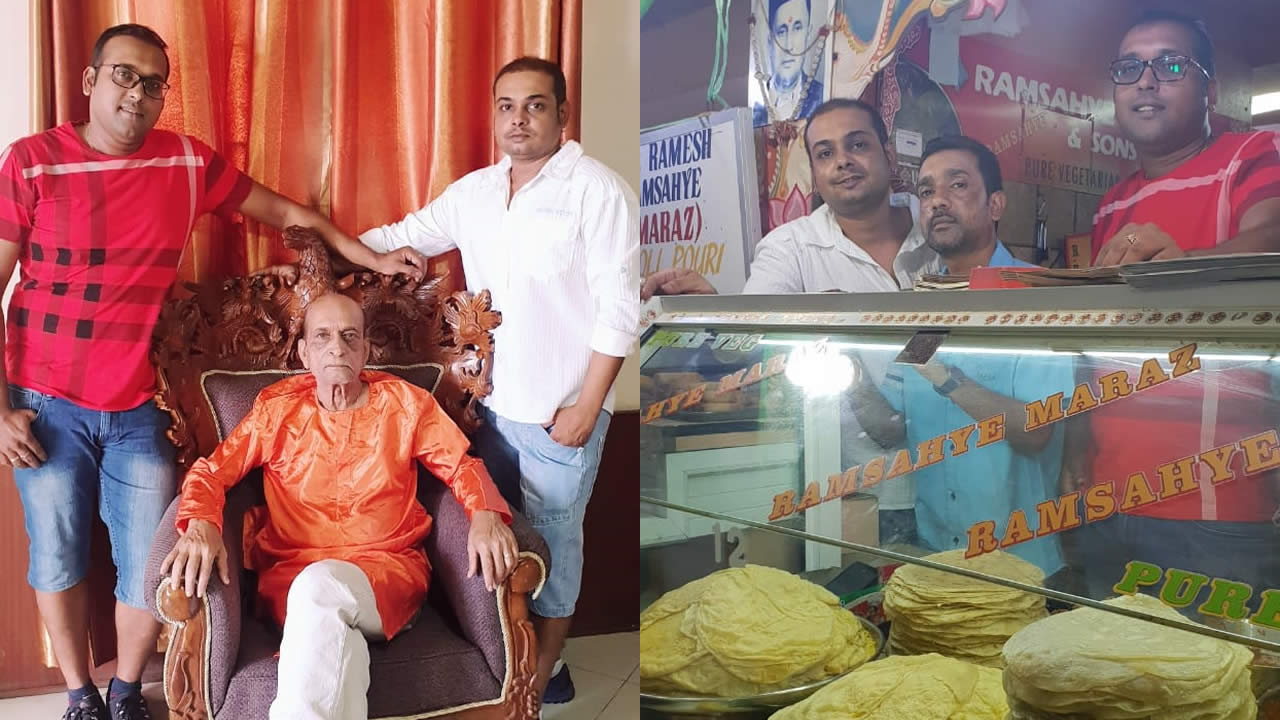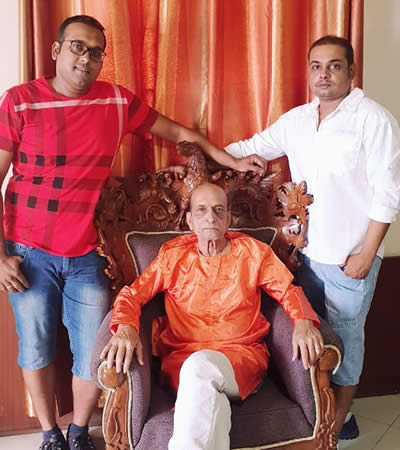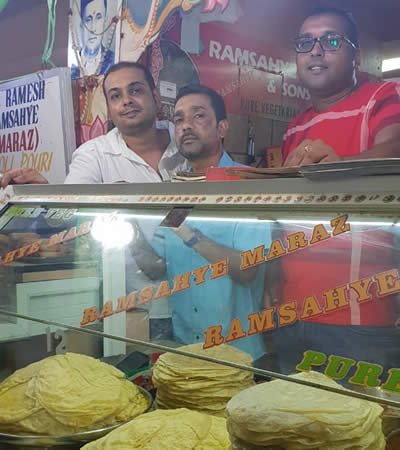
The keys to long-term success are professional management and keeping the family committed and capable of carrying on as the owner. Ramesh Ramsahye Maraz, whose father is known as the pioneer of ‘dholl puri’ in Mauritius, has been running his family business lucratively since six decades. Now, his two sons have taken over, making it a three-generation family business. What are their secrets of running a business as a family?
‘Dholl Puri’ is a typically Mauritian food, which is eaten with great delight in our country. This food has become so popular that many Mauritians are earning a lot of money by opening ‘Dholl Puri’ shops in European countries. What is the history behind it? Where did the concept originate? How, with time, did the consumption of this food spread like wildfire across the country? Ramawahh Ramsahye Maraz, the father of Ramesh and the grand-father of Chandan and Ashutosh, was the creator cum entrepreneur, a century ago. It all started when he realized that the preparation of ‘tekwa’ (sweet cakes of a round shape filled with split peas), was costing a lot, as he had to deep fry it in oil.

He tried to create a mixed version with ‘roti’ and ‘tekwa’, which were both very popular food recipes brought by Indian immigrants to Mauritius. This was how was born the famous ‘Dholl Puri’. At that time, he sold it along with mashed potatoes and other vegetables for consumption. Ramesh Ramsahye Maraz started working with his father at the age of 14. At that time, the business of food had no great development in our country, as people were poor. They were sold at Rs 15 cents for one pair. After his father passed, he continued with the family business. “I was the one who added kidney beans to eat with the ‘Dholl Puri’. At a point of time, I was selling so many ‘Dholl Puris’ per day that it became difficult for me to continue mashing boiled potatoes. Instead, I tried using kidney beans as a substitute and it tasted great. I have been using it since and it became popular among all other ‘Dholl Puri’ vendors who came after me,” he said proudly.
The new generation takes over
Ramesh narrates that when his business started prospering and growing, many people came to work with him but left midway. “Most of them would work two weeks or one month in order to learn about the business and then they would leave me to set up their own businesses. As I needed people to work with me, this attitude continued for years,” he remembers. As time passed by, his son Chandan started helping him, followed by his second son Ashutosh. Seeing that the family business binds them with their parents the whole day, his two sons decided to stay in the business and take it ahead. Last year at the age of 74, Ramesh delegated the responsibilities to his sons and retired.
He now acts as the head of this company, guiding them. “It took me time to give them the full responsibility because I wanted to make sure that they were prepared to run it with the same honesty and diligence,” he says. Ramesh also ensured that he gave them a good education and did not pressurize them to enter the family business. “Labour has always brought its share of trouble. People come, learn how to do the work and then just disappear. That is why my brother and I decided to help our father. We already loved the business because it was a great satisfaction for me and Ashutosh to satiate the hunger of people. I don’t see a better business like this,” says Chandan. For Ashutosh, working along with his family is a great feeling. “We would work the whole day serving ‘Dholl Puris’ at the central market of Port Louis and in the evening, we are at home together. We are able to build a better relationship at home because of working together,” he affirms.

Obstacles
The greatest obstacle for their family business is scaling. If they wanted to scale, they would have had to separate from each other and work mainly with strangers. That is one main reason why the Ramsahye Maraz family did not open other branches though they could have made a fortune out of their popularity. “We prefer to stay tied as a family instead of breaking into parts. Unity makes strength holds true for us,” says Ashutosh. Another reason for not scaling is keeping the quality of their service. “Right now, we are providing quality food, if we produce more ‘Dholl Puris’ per day with the present workforce, the quality will undoubtedly not remain the same,” explains Chandan.
Where family businesses are concerned, we often have to deal with conflicts, too. How did the Ramsahye Maraz family cope with them? Chandan and Ashutosh do not deny that conflicts do exist, particularly where innovations are concerned but using their brains with alacrity to take decisions fixes everything. “Whenever my brother or I want to bring in new things in the business, we ensure that it’s my father who takes the final decision. He is the head, so we have to respect his decision. However, if we still think the idea can improve our family business, we try to convince him again at a later time after doing more research,” explains Ashutosh.
To avoid conflicts at work, the Ramsahye Maraz family give priority to discipline on relationships at the work place. As they see it, for work to run smoothly, it’s important that everyone is aware of his or her responsibilities and does not take the advantage of relationships that are working well. “In case of any illness or emergency, we have to show that we understand the situation and find a way to fill in the gap, or else there should be no excuse for absences,” says Ramesh.
The secrets of a successful family business, according to the experiences of the Maraz family:
- To run a flourishing family business, one must first build a good family at home. This will ensure that family members solve problems together, not against each other.
- Honesty and transparency in all transactions clear doubts and strengthen trust among each other.
- A head in the business is of utmost importance and the latter should be a person who has taken wise decisions across time.
- Never compromise on quality and cleanliness, especially in the business of food. Despite the fact that in a family business, everyone has his own responsibility, the head has to assure that these two factors are respected at all levels.
- There are always innovations, which can greatly help in making the business easier and more efficient. Sticking to traditional and old technologies must not create frictions. As a leader of a family business, we must be open to new ideas and technologies.
 J'aime
J'aime














